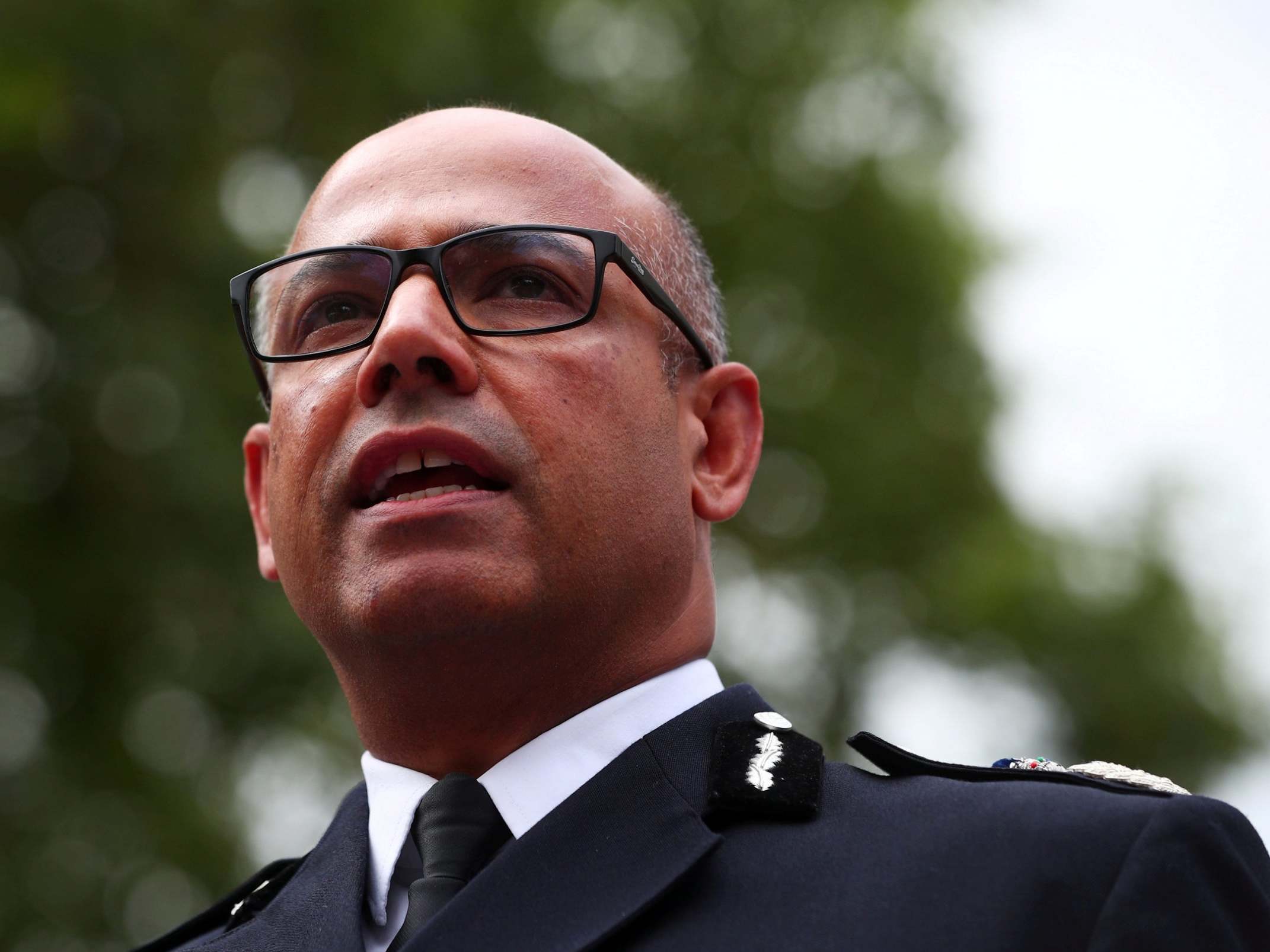The counter-terror chief wants help from sociologists. My findings? Britain must ditch its ruinous foreign policy
Neil Basu is right to acknowledge that addressing terrorism should involve tackling inequality and racism. But it will also require a radical rethink of Britain's place in the world

This week the Metropolitan police assistant commissioner, Neil Basu, Britain’s most senior counter-terrorism officer, spoke candidly about the ineffectiveness of existing policy, particularly the Government’s Prevent programme, the strand of counterterrorism that aims to prevent people from being drawn into terrorism. Basu emphasised the need for counterterrorism to be underpinned by a broader policy agenda around “social inclusion” and called on sociologists and criminologist to help policy makers in identifying the underlying causes of terrorism.
These are all welcome statements, perhaps suggesting some tentative steps in the right direction. However, what is really needed is not tinkering around the edges, but a radical policy shift. This will require along with it much greater recognition of how damaging the existing approach has been.
Prevent is sold by its advocates as being based on safeguarding vulnerable people against the dangers of extremist ideologies, and this is how Basu describes its original intention, while implying that the policy has somehow lost its way. This is a rather sanguine interpretation.
Prevent appears from the start to have been motivated by a desire to collect intelligence on Muslim communities, and has since expanded to become an opaque bureaucratic behemoth that threatens civil society and civil liberties. Since 2015, the policy has been put on a statutory footing, meaning that public institutions have a legal duty to identify risks of vulnerability amongst service users and to report any suspicious views or behaviours.
Basu acknowledges that Prevent is a “toxic brand”, but sees the issue as being “better communication” and more effective public defence of the policy. But what if the problem isn’t the PR, but the political assumptions implicit in the policy itself?
Central to UK counter-terrorism has been the notion that terrorism is caused by extremist ideology. This seems to be understood by the Conservative government as a deviation from a rather arbitrary set of “British values”, but on close inspection the concept of “extremism” is more or less meaningless. Indeed, it was recently revealed that efforts to develop legislation based on the concept were abandoned because it is “broad and ill-defined”.
This hasn’t stopped many researchers from unquestioningly picking up and running with these concepts despite their lack of scholarly value.
Think tanks are often not transparent when it comes to their funding, or are insufficiently clear or rigorous when it comes to their data and methodology. Academics, meanwhile, have too often adopted pseudoscientific concepts to try and attract research funding and deliver ‘impact’ (as is strongly incentivised in universities), while funding received directly or indirectly from the security state often goes undeclared in research outputs.
If we want evidence-based policy, we need independent social science. By this, I do not mean that researchers must be “neutral” in the sense of lacking any normative commitments or intellectual interests. Rather the key issue is that outside interests – including the state – must not be able to influence the research process, including the concepts used and methods adopted.
Even accepting the significant problems with existing research on terrorism, though, there is fortunately enough of an evidence base to call into question the received wisdom propagated by so many would be experts, and to support some of the scepticism recently expressed by Basu.
Often the focus of research is on the relationship between terrorism and education, poverty or other economic indicators. The assumption here is that development policies might help reduce levels of political violence.
This has mostly proved a dead-end, although there is some evidence of a relationship between inequality and terrorism. A much clearer association emerges when levels of terrorism are compared to other forms of violence.
The largest dataset of terrorist incidents in the world is maintained by the University of Maryland in the US. It is based on media reports, and so not exactly ideal, but it’s the best we’ve got. In 2015, the Institute for Economics and Peace published its annual Global Terrorism Index, which included statistical tests for correlations between its dataset of terrorism incidence and over 5,000 other datasets, indices and surveys.
The researchers found no significant correlation between terrorism and Islam, or religion in general. What they did find was that terrorism has been most strongly associated with ongoing armed conflict, political instability or repression, including repression of religious groups, state failure and sectarianism.
In light of this evidence, which is supported by the broader literature, a medium to long-term policy approach is pretty clear. Reducing terrorism will require a commitment to peace, democracy and human rights. This doesn’t mean publicly expressing a commitment to these principles, as has long been customary in British public life – that will have no effect. It means a commitment to these principles in actuality, which would entail a radical shift in foreign policy.
The country-based data is suggestive of a somewhat different picture in higher income countries like the UK, where the closest correlates are metrics of “social exclusion”. In that respect, Basu’s acknowledgement that addressing terrorism here could be most effective through tackling inequality and racism, including perhaps police harassment, is supported by the evidence and is therefore very welcome.
Yet we should not imagine that any such initiatives will be effective without addressing international questions such as Britain’s close relationship with oppressive regimes around the world, its fidelity to American power no matter who is in the White House, or its role as one of the leading global arms dealers.
Whilst a country-based approach is suggestive of different causal factors in wealthy countries, seen in a broader context, domestic terrorism can arguably be seen not only as a symptom of various types of social exclusion, but also as “spill-over” from international conflicts. All this is consistent with a recent review of the literature on “radicalisation”, which suggests that foreign policy features alongside social marginalisation as a key factor.
As Basu acknowledges, what is needed is an evidence-based approach that focuses less on mitigating imminent threats – firefighting which too readily slips into racism and repression – and more on the underlying causes of terrorism. If we want evidence-based policy, though, we need to take steps to ensure independent and transparent research, and if we want an effective counterterrorism policy we need to sufficiently acknowledge how damaging the current approach has been.
Tom Mills is a lecturer in sociology at Aston University. He is the co-author of ‘Leaving the War on Terror: A Progressive Alternative to Counter-Terrorism Policy’, a forthcoming report from the Transnational Institute




Join our commenting forum
Join thought-provoking conversations, follow other Independent readers and see their replies